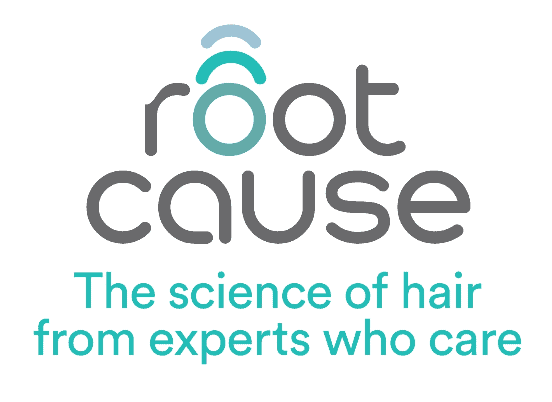How Inflammation Affects Hair Loss: What You Need To Know
03.19.25
Inflammation is a natural response by the body to injury or illness, but when it becomes chronic, it can negatively impact many areas of health—including your hair. For people dealing with autoimmune conditions, inflammation plays a major role in hair thinning, shedding, and even permanent loss.

Our trichologist Mandy breaks down how inflammation affects hair follicles and what you can do to support healthy hair growth.
Alopecia Areata: When the Immune System Attacks Hair

Alopecia areata is a common autoimmune condition where the immune system mistakenly targets hair follicles. This leads to sudden, patchy hair loss and, in some cases, complete baldness.
Here’s what happens:
- Immune System Attack: White blood cells gather around hair follicles like a “swarm of bees,” attacking the root and stopping hair growth.
- Inflammation and Shedding: Certain inflammatory proteins (called cytokines) disrupt the growth cycle, leading to hair loss.
- Regrowth is Possible: The good news is that the follicles usually remain alive, meaning hair can regrow with the right treatments.
Lupus and Other Autoimmune Diseases: How They Affect Hair
Lupus and similar conditions can cause hair loss due to widespread inflammation in the body.
- Scalp Inflammation: Lupus can lead to inflammation on the scalp, which may cause permanent follicle damage in severe cases.
- Immune Complexes: Deposits of immune system proteins in the skin worsen inflammation and hair loss.
- Flare-Triggered Shedding: Many people with lupus notice increased hair loss during flare-ups when inflammation is at its highest.
Rheumatoid Arthritis (RA) and Hair Thinning
RA is best known for causing joint pain, but it also creates high levels of inflammation that can affect hair growth.
- Chronic Inflammation: The constant presence of inflammatory proteins in the body can push hair into the shedding phase too soon.
- Medication Side Effects: Some RA treatments can contribute to hair thinning, making it difficult to determine whether hair loss is from the disease or its treatment.
How to Reduce Inflammation and Support Hair Growth
While autoimmune conditions can make hair loss more challenging, there are ways to reduce inflammation and protect your hair.
Medical Treatments:
- Anti-Inflammatory Medications: Corticosteroids (topical or oral) can help calm inflammation and protect follicles.
- Immunotherapy: Medications like JAK inhibitors may help restore immune balance in cases of alopecia areata.
- Biologic Therapies: Some newer treatments can block the specific inflammatory proteins responsible for hair loss.
Lifestyle and Hair Care Tips:
- Manage Stress: Stress is a major trigger for inflammation. Techniques like meditation, yoga, and deep breathing can help.
- Eat an Anti-Inflammatory Diet: Foods rich in omega-3 fatty acids (like salmon), antioxidants (like berries), and vitamins (like leafy greens) can help reduce inflammation.
- Be Gentle with Your Hair: Use sulfate-free shampoos, avoid excessive heat styling, and be mindful of tight hairstyles that can stress the scalp.
Final Thoughts
If you’re experiencing hair loss related to an autoimmune condition, it’s important to address the underlying inflammation. Whether through medical treatments, diet, stress management, or scalp care, taking steps to reduce inflammation can improve your chances of maintaining and regrowing healthy hair.
If you’re concerned about hair loss, speaking with one of our trichologists at Root Cause Clinical can help you understand the best approach for your specific needs.
